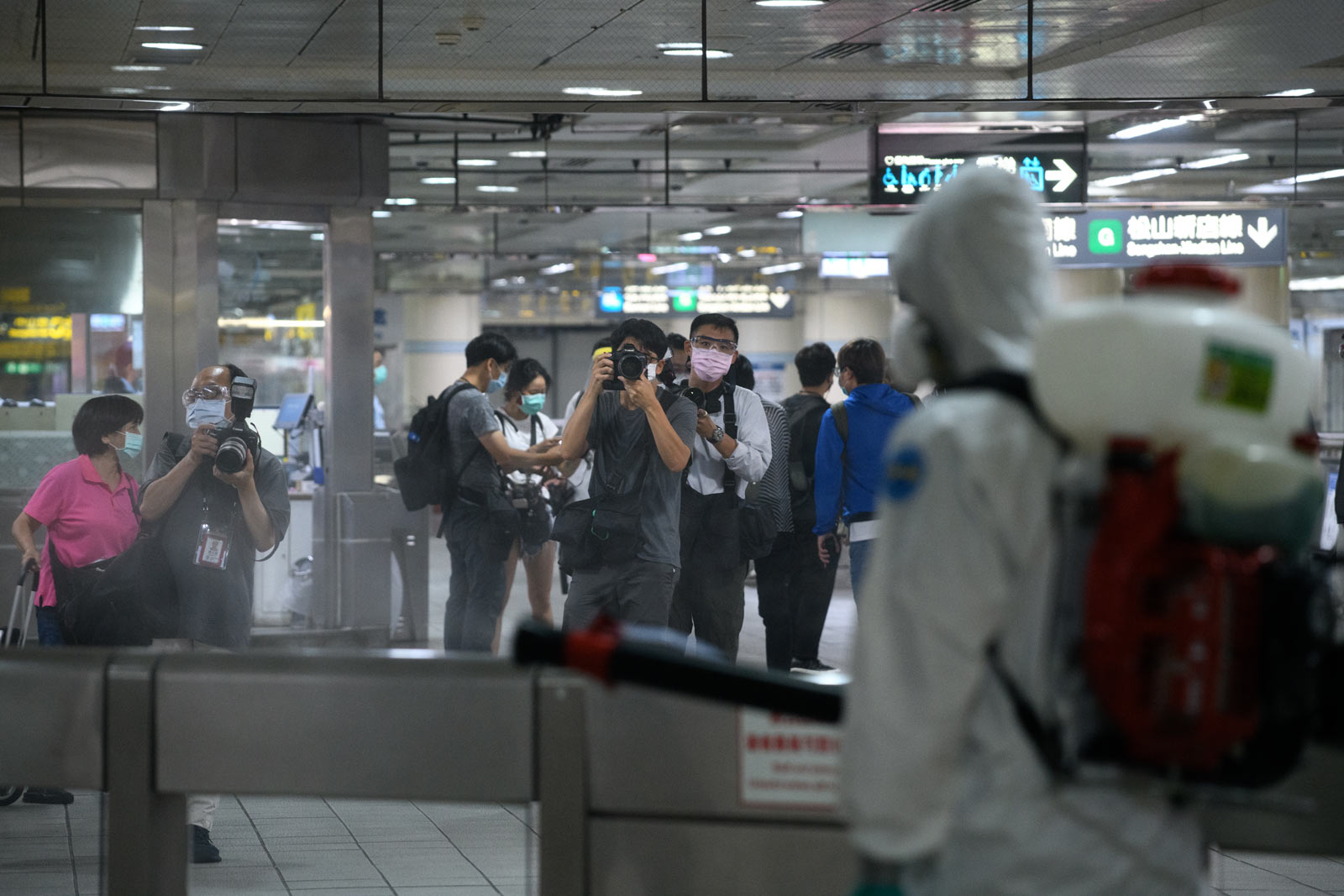Media: spread COVID-19 information, not hype

Source:Pei-Yin Hsieh
Easing COVID-19 restrictions is a decision that is inevitable and involves trade-offs. At these trying times, it’s crucial for the public to understand that the situation is complex — far more complex than politics. Let us focus on what we can do to spread truth and help each other in the coming months. A Taiwan-based medical scientist shares his insight.
Views
Media: spread COVID-19 information, not hype
By Chase W. Nelsonweb only
♦ Updated daily |Taiwan’s Covid-19 Outbreak
I was recently fortunate to be interviewed by the UK Telegraph regarding Taiwan’s COVID-19 situation. Unfortunately, certain media outlets have used my observations to support a political agenda. This is especially inexcusable when the topic is public health and thousands of lives are at stake.
Instead of carefully selecting only negative (or only positive) comments, I urge the media to take a balanced view and spread information that matters.
Some things everyone should know:
- the majority of new COVID-19 infections occur when people inhale shared indoor air (COVID is airborne)
- the top symptoms of COVID-19 resemble a cold (runny nose, fatigue, sore throat, sneezing, and headache), but a fever is less common
- a fraction (~1-5%) of those who develop COVID-19 symptoms will continue to experience symptoms like fatigue for many months (long COVID)
- COVID-19 vaccines can cause side effects that should be taken seriously, but the risks from COVID-19 itself are much greater — especially for the elderly
- rapid antigen tests are a good indicator of whether you are currently contagious, but can be negative even when you’re infected
Some good news:
- the population of Taiwan is relatively freshly vaccinated, meaning vaccine-induced immunity has not substantially waned
- Omicron may be slightly less severe than previous variants, like Delta, but remains highly dangerous to the unvaccinated
- Taiwan has antiviral medications for those at highest risk
Some bad news:
- 21% of Taiwan’s 75+ year-olds are unvaccinated, and Hong Kong’s Omicron outbreak suggests their case fatality rate will be very high (~16.5% for unvaccinated 80+ year-olds and 5.6% for unvaccinated 70-79 year-olds)
- current COVID-19 vaccines give good protection against severe disease from Omicron, but are only partially effective at preventing infection by this variant
- the counting of deaths lags 2-4 weeks behind cases because of the time it takes to die from the disease and register the death
Given the above, we can expect the number of deaths to increase a lot soon. Taiwan may peak at >100,000 cases and >100 deaths per day. If this occurs too quickly, hospitals and medical workers could become too overwhelmed to treat even normal problems. Thus, the top priority should be to vaccinate 75+ year-olds while we limit the speed at which the virus spreads. This is not cause for panic — but it is cause for action.
What you can do:
- tell the elderly that everyone is likely to be exposed to COVID-19 soon, and the risk to seniors is especially high: in Hong Kong, unvaccinated 80+ year-olds have been ~15 times more likely to die from Omicron than those who are fully boosted. Seniors have a choice of whether to be vaccinated when their exposure occurs, and every dose helps
- open windows for ventilation at places like gyms and restaurants, and move activities outside whenever possible
- wear masks in indoor spaces, even when not required by a rule (for example, at the gym)
- avoid any crowds or gatherings you don’t strongly wish to attend
Taiwan has nothing to prove. It has already demonstrated one of the best pandemic responses in the world. It has now chosen a well-calculated time to gradually relax COVID-19 restrictions — a decision that was probably inevitable and involves trade-offs.
The public is wise enough to understand that the situation is complex — far more complex than politics. Let us therefore focus on what we can do to spread truth and help each other in the coming months.
Acknowledgments
Thanks to Shen-Horn Yen, Franklin Chou MD MPH, Chen-Hao Kuo 郭陳浩, Gary Wu, Catie Lilly, Ming-Hsueh Lin, and Wei Tai for indispensable feedback and translation. All views and any errors are my own.
(This piece reflects the author's opinion, and does not represent the opinion of CommonWealth Magazine.)
About the Author:

Chase W. Nelson 倪誠志, Ph.D. is a Research Fellow at the National Cancer Institute, National Institutes of Health 美國國家癌症研究院 (Maryland, USA) and Visiting Scientist at the American Museum of Natural History 美國自然歷史博物館 (New York City). His research utilizes computation and theory to study the mechanisms driving evolution in humans and viruses. He lives in Taipei, Taiwan.
Have you read?
- Updated daily |Taiwan’s Covid-19 Outbreak
- How can Taiwan learn to coexist with COVID-19?
- What price has Shanghai paid for China’s zero-COVID policy?
Uploaded by Ian Huang






